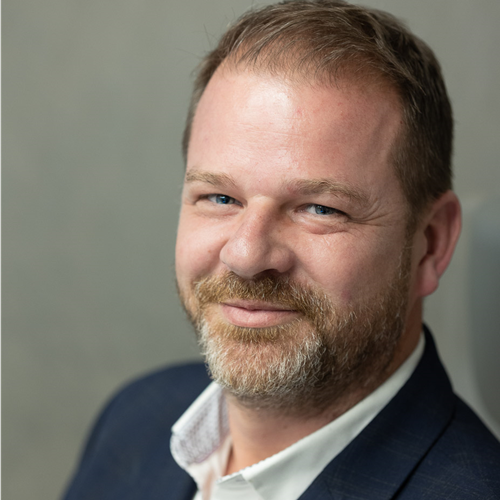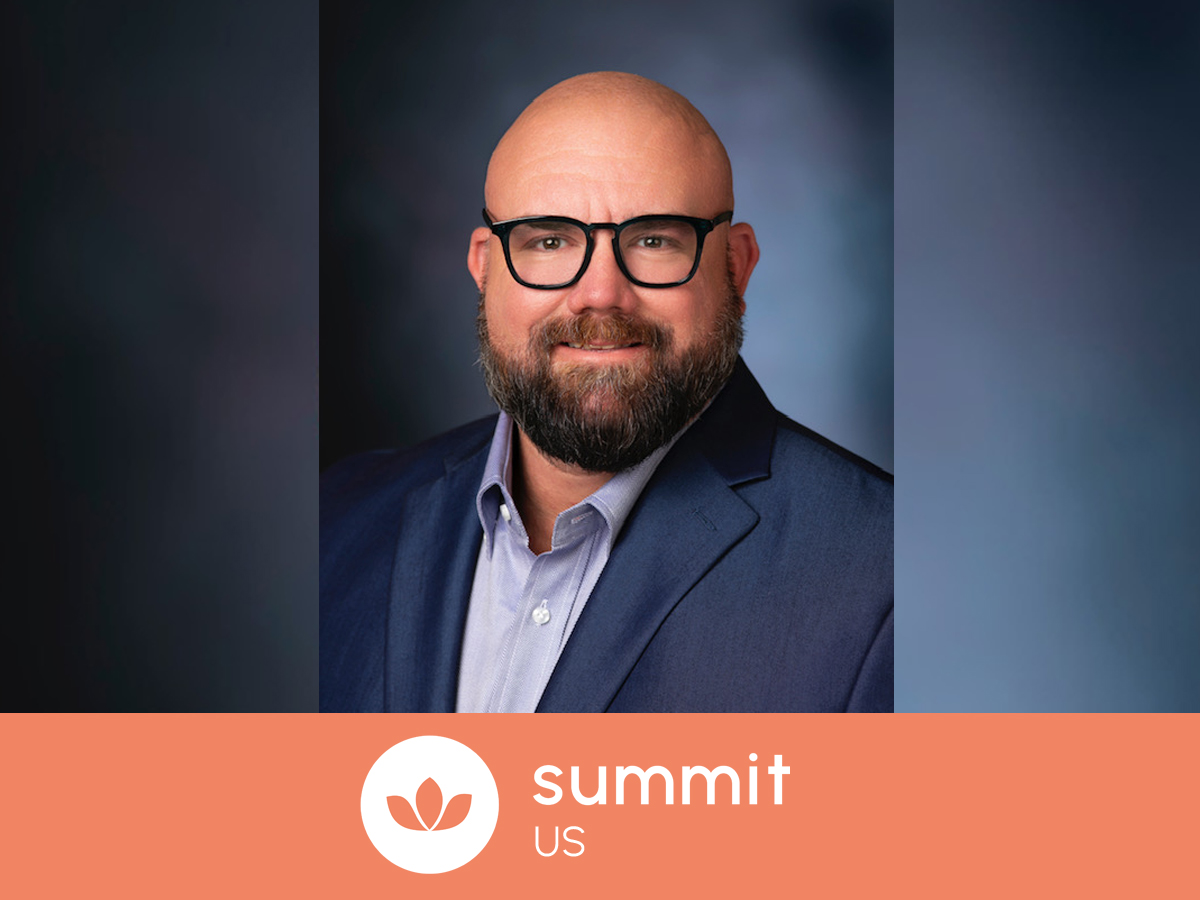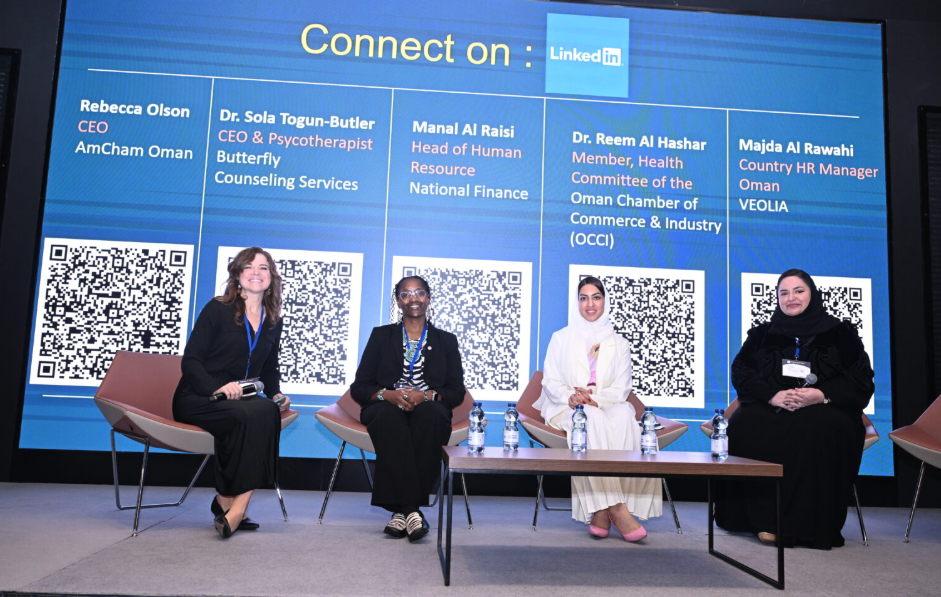
Renee Conklin works exclusively with female senior leaders in HR who feel stuck to help them love their work or find work they love. She previously held HR roles at Barclays, UBS and IBM in New York, Singapore, and Hong Kong as a Head of Talent Acquisition, an HR Business Partner, a Head of HR and an HR consultant. Through 1:1 coaching, her job search accelerator program and personal branding support, Renee helps HR leaders reignite their passion in human resources and gain the confidence and clarity to take their careers to the next level. Renee has an MBA from the Hong Kong University of Science and Technology (HKUST), is ICF accredited (PCC) and is Hogan Assessment certified.
We are delighted that Renee will be speaking in Singapore as part of our Asia summit. We caught up with her to see how she’s feeling in the runup to the event.
Hi Renee, we are thrilled that you will be speaking at the Wellbeing at Work Asia Summit in March. Our first and most important question is, how are you doing today?
I’m great, thanks for asking! I moved to Singapore about 6 months ago after 17 years of living in Hong Kong. I’m excited to start the next leg of my adventure living in this part of the world and exploring more of South East Asia. My initial impression is that Singapore is very clean, the people are really friendly and it’s great for kids (which is ideal for my 2.5-year old). So far, so good!
As a leader based in the region, what are the main challenges you are facing when it comes to employee wellbeing and mental health?
As an Executive Coach, I work exclusively with senior female leaders in Human Resources who feel stuck to help them love their work or find work that they love. Through my own experience as an HR practitioner and my work with clients, it’s become clear to me that HR is often a forgotten function with little influence that gets left behind in many organizations. In addition, non-HR folks think that HR is “easy” which makes HR leaders doubt their contribution and wonder if the complexity of the role is all in their heads. HR is expected to be so many things: culture carrier, babysitter, camp counsellor, first aider, legal guru, compliance fiend, automated “no” inbox, strategic problem solver and so much more. With that level of complexity, it’s no wonder that they doubt their abilities.
These things cause HR leaders to suffer from imposter syndrome, leading many to feel stuck in their work with no clear path forward. HR leaders are constantly supporting others’ wellbeing while lacking similar support systems for themselves. They are the caretakers at home and in the office – aging parents, young kids, the CEO and senior leadership team – they are all important stakeholders demanding of HR’s time. This comes at a personal cost that manifests as burnout, decreased engagement, and HR leaders questioning their value – what I see as being “stuck” in their careers.
What strategies have you seen developing over the past 6 months, both internally and externally, that are moving the dial on wellbeing in the workplace?
I’ve certainly witnessed an increase in the recognition and awareness of the emotional burden that HR leaders face in their roles. Simply acknowledging and verbalizing this struggle is a newer trend that has resulted in communities dedicated to HR professionals, multiple podcasts hosted by in-house HR leaders, conferences solely focused on HR leadership and new research and studies that actually ask HR leaders “How are YOU doing?” instead of just “How is your BUSINESS doing?”
This awareness and recognition has led to the creation of external support networks and communities for HR leaders. These communities connect HR professionals across different organizations who understand each other’s unique challenges without the complications of internal politics. This is so important, especially for HR leaders in a “one-man band” role who really benefit from having a sounding board and a network to turn to and ask “Does this make sense? Am I doing this the right way?”
Why is employee wellbeing so important to you personally?
Employee wellbeing is deeply personal to me because I’ve lived it! I’ve been that HR leader with the “Sunday night dread” – lying awake at 3am and feeling like I couldn’t do one more day of the HR work that I once loved. I remember the exhaustion of putting on a brave face while questioning my own value and expertise. Wellbeing isn’t a luxury; it’s essential for meaningful contribution. Every time I help a senior HR leader rediscover their purpose, I’m reminded that wellbeing is the foundation upon which all professional success is built. It’s about creating environments where talented leaders can thrive instead of just survive.
What impact is AI having in your organization and how are you managing that?
There are so many use cases for AI in HR! I think AI is really exciting for my HR clients because it opens up a huge amount of opportunity to reduce the administrative burden that often sits in the Human Resources function. AI can help HR leaders move from transactional work to focus on the transformative leadership they’re capable of.
Not to put myself out of a job, but AI can also be a useful coach. When I reflect on my career, I often think that I would have made a lot of different decisions if I had had a coach or confidential sounding board to speak with during critical career junctures. Working with an executive coach can be financially out of reach for many, so using AI to support you through day-do-day challenges, like how to build a better relationship with your senior stakeholder or how to customize your resume for a specific job is incredibly valuable.
Other than AI, are there any challenges that you are seeing for the first time and how are you addressing them?
The past 5 years have been really difficult for HR leaders. From navigating a global pandemic to managing remote work to competing in a very tight talent market to the last 18 months of layoffs and market stagnation. Many HR leaders are just exhausted, tired of taking care of everyone else while trying to find what little is left for themselves. Having spent years developing and nurturing others, they’ve become “hidden gems” – valuable but not fully recognized, even by themselves. Many HR leaders struggle to articulate their unique value proposition in a constantly changing landscape.
I address this by helping professionals uncover patterns in their success stories that reveal their core strengths – often strengths they’ve taken for granted because they come so naturally. Through coaching, we transform self-doubt into self-awareness and create strategies for leveraging capabilities in ways that energize rather than drain.
What areas do you think employers should be focused on over the next 12 months?
Employers should focus on three critical areas:
First, creating psychological safety for HR leaders to acknowledge when they’re struggling. The irony isn’t lost on me that those championing psychological safety often don’t experience it themselves.
Second, investing in personalized development that helps HR professionals recognize and leverage their unique strengths. Targeted coaching can help individuals and teams get “unstuck” and rediscover their passion.
Third, normalizing career reflection as an ongoing practice rather than a crisis response. Organizations that encourage regular career conversations (not just during annual reviews) will retain talented HR leaders who might otherwise become disengaged.
Do you feel that investment in employee wellbeing in the region is increasing or decreasing and is that a direct reflection on HR leaders’ increasing ability to demonstrate effective returns of their strategies to leadership?
HR has always been last to the party when it comes to investment in themselves. The irony is that HR has access to all of the latest tools and technologies to support their wellbeing and development because we are the ones that are responsible for rolling it out to our organizations: micro-learning, virtual training, MOOC’s, LXP’s – you name it, we’ve got it! But many HR leaders that I work with find that it is easy to advise their business stakeholders on what they should do, yet, it feels so difficult when they try to do it for themselves.
I’ve witnessed remarkable transformations when HR leaders commit to prioritizing their own development. What begins as a personal journey of wellbeing inevitably translates into more compelling advocacy, more innovative approaches, and more impactful relationships with senior leadership. The future belongs to HR leaders who recognize that their personal wellbeing journey isn’t separate from their professional impact—it’s the foundation of it.
How has your organisation been leading the way?
RC HR Consulting leads the way by demonstrating that career transformation doesn’t require dramatic disruption. We focus on helping HR leaders turn moments of challenge – like a career setback or feeling isolated – into opportunities for growth and clarity. We emphasize that feeling stuck isn’t a personal failure but a signal that something needs to change. Most importantly, we create a safe space where HR leaders can express frustrations and fears without judgment – something they rarely experience in their daily roles. By helping HR leaders reconnect with their strengths and values, we’re not just improving individual careers but transforming how organizations approach wellbeing from the inside out.
Renee will be speaking in Singapore at the Wellbeing at Work Summit Asia. Further details on the Summit can be found here.



